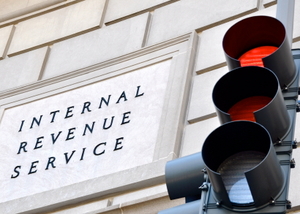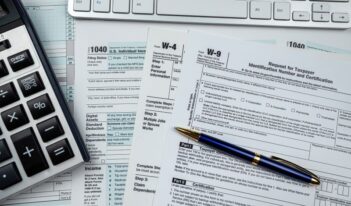
Ruling creates confusion during tax season.
As tax season comes into full swing, so-called “tax professionals”—individuals who prepare taxes for compensation but are not lawyers or accountants—now face unclear regulations—if they face any at all.
In response to numerous allegations of fraud perpetrated by tax professionals, the Internal Revenue Service (IRS) created a series of regulations in 2011 aimed at protecting taxpayers from potential malpractice.
However, in a recent decision that came as a surprise to the IRS, a federal trial court struck down the program, holding not only that the IRS “unambiguously” lacked the statutory authority to regulate tax preparers, but also that the agency could not empower itself to do so. The court issued a permanent injunction dismantling the regulatory initiative.
The ruling decided a lawsuit brought by three independent tax preparers, each of whom claimed that the IRS lacked the statutory authority to regulate them. Dan Alban, an attorney representing the plaintiffs, denounced the regulatory initiative on tax preparers as an “unlawful power grab by one of the most powerful federal agencies.”
The plaintiffs, in conjunction with the libertarian law firm Institute for Justice, argued that an 1884 statute, upon which the IRS relied to justify its regulatory scheme, failed to provide sufficient authority for the intrusion into the operations of tax professionals. While the statute granted the agency the authority to regulate “representatives” who “practice” in front of the IRS, the court determined that the tax professionals at issue in the case did not meet this definition and therefore could not be subjected to the program.
Although the agency has complied with the trial court’s order by lifting the requirements, it continues to insist that regulations of this sort are necessary to protect taxpayers. Oversight of tax preparers formed a cornerstone of the regulatory agenda of former IRS Commissioner Doug Shulman, who called the regulatory program a “game-changing event for the tax system.” The agency plans to appeal the recent court decision.
To the IRS and a range of government officials and watchdog groups who supported the regulations, the threat of fraud, as well as high numbers of poorly prepared returns, seemed to demonstrate why increased scrutiny is important. Supporters argue that these tax professionals operate within a regulatory gap that should be closed. The IRS had not previously subjected the tax professionals targeted by the regulations, unlike tax attorneys and certified public accountants, to any national standards. The requirements impose heightened standards only on compensated tax professionals, and therefore do not apply to those who provide tax services free of charge to needy Americans.
Although the IRS contends that its regulations are still necessary, others have labeled them intrusive and misguided. The rules require paid tax preparers who are not attorneys or accountants to complete a competence test, fulfill registration requirements, and complete fifteen hours of continuing education per year.
Such requirements may be burdensome to small tax preparation firms. The Institute for Justice argues that the cost of the continuing education requirements is prohibitive to many, claiming that the price tag for required courses could exceed $1,000 per year. Similarly, the competency test costs tax preparers over $100 per attempt, and a tax preparer must successfully complete the exam before registering to provide services. If such fees were to drive small “mom-and-pop seasonal competitors” out of business, taxpayers may have fewer affordable choices when seeking help on their returns.
Others denounce the program as catering to the special interests of large tax preparation firms, pointing to support by H&R Block and Jackson Hewitt for the program. Institute for Justice Senior Attorney Scott Bullock argued, “[the regulations] benefit powerful industry insiders at the expense of entrepreneurs and consumers, who will likely have fewer options and face higher prices.”
The ruling and subsequent legal action by the IRS have cast a shadow of uncertainty over the current tax season, which officially began on January 30. On February 1, the court clarified that its injunction does not bar the IRS from continuing to issue registration numbers to tax professionals, as this procedure has been expressly authorized by statute. However, the other features of the regulatory program remain unauthorized pending the resolution of the forthcoming appeal of the court’s decision.
Until the court rules on the IRS motion, the impact of the ruling on the 700,000 tax preparers currently registered under the regulatory program remains unclear. Many of them have already paid registrat
ion fees and incurred other expenses to comply with the requirements, and over 100,000 have taken the IRS-mandated competence exam.
Since the inception of the program, the IRS has collected over $100 million in compliance fees. The agency fears that the dismantling of its regulatory regime could result in class action lawsuits from tax preparers seeking to recover such fees. The IRS is also concerned that, if the court upholds the program on appeal, the costs of restarting the program after the court-imposed hiatus would result in “substantial costs” to the agency.



